Transition farm throwing open its gates
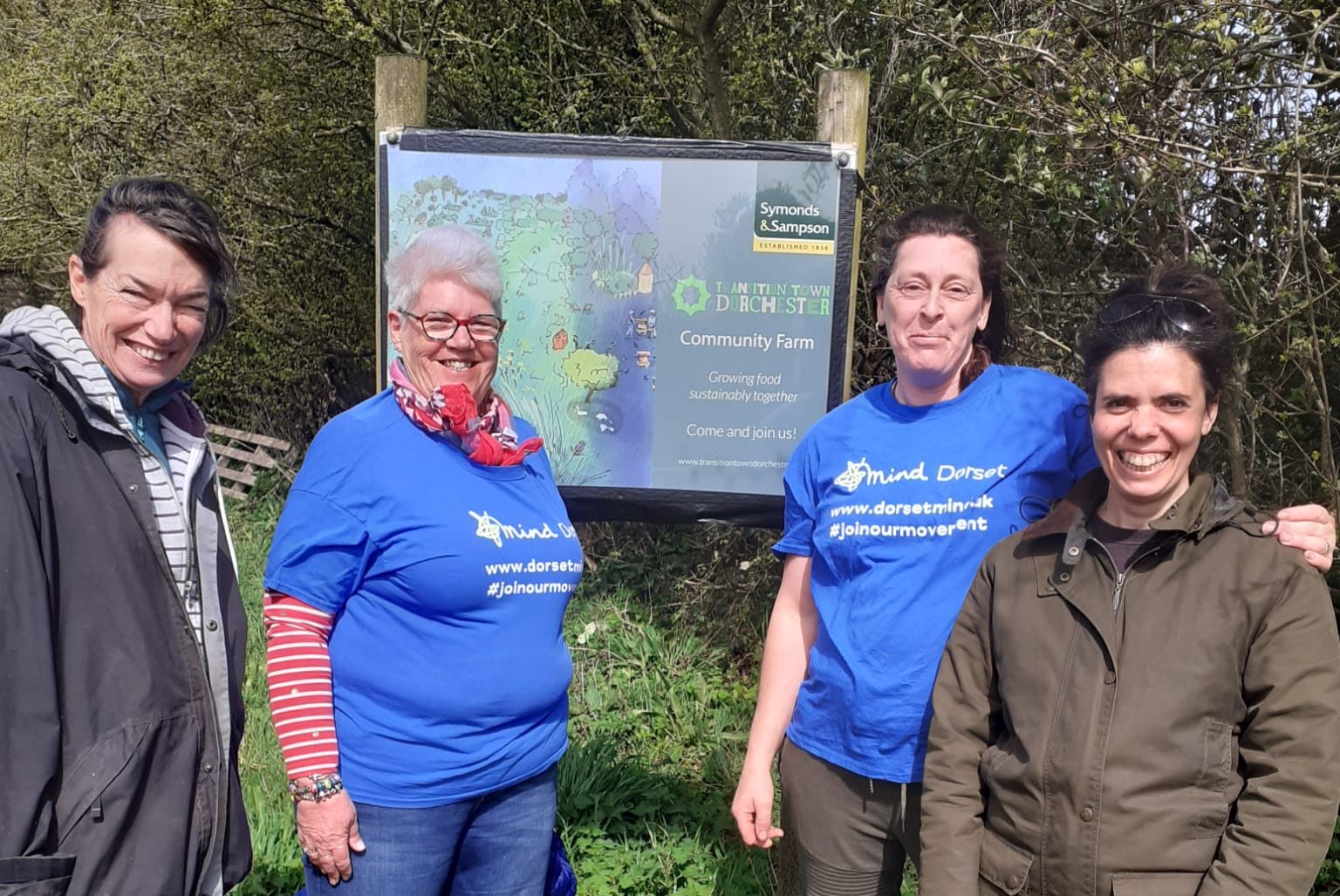
17 April 2024
6 minute read
The benefits of growing food together should be accessible to everyone, believes Transition Town Dorchester. And this week their community farm launches a new partnership with another local charity to make that real for more people in their town.
“I don’t come from an environmental or activist background,” says Michelle, new farm co-ordinator at the project. Her journey from private equity firm to farmer shows that anyone can reconnect with the soil, with food and nature and their community.
The farm started in 2010 as one of the thriving Transition Town’s projects. Like many, the pandemic was a huge disruption to group activity, and with some of the team leaving the area the core farm volunteers now have a challenge to keep on top of the site.
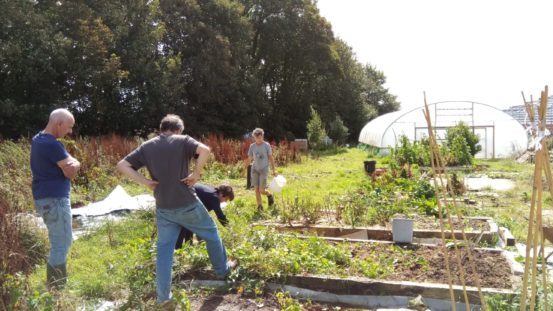
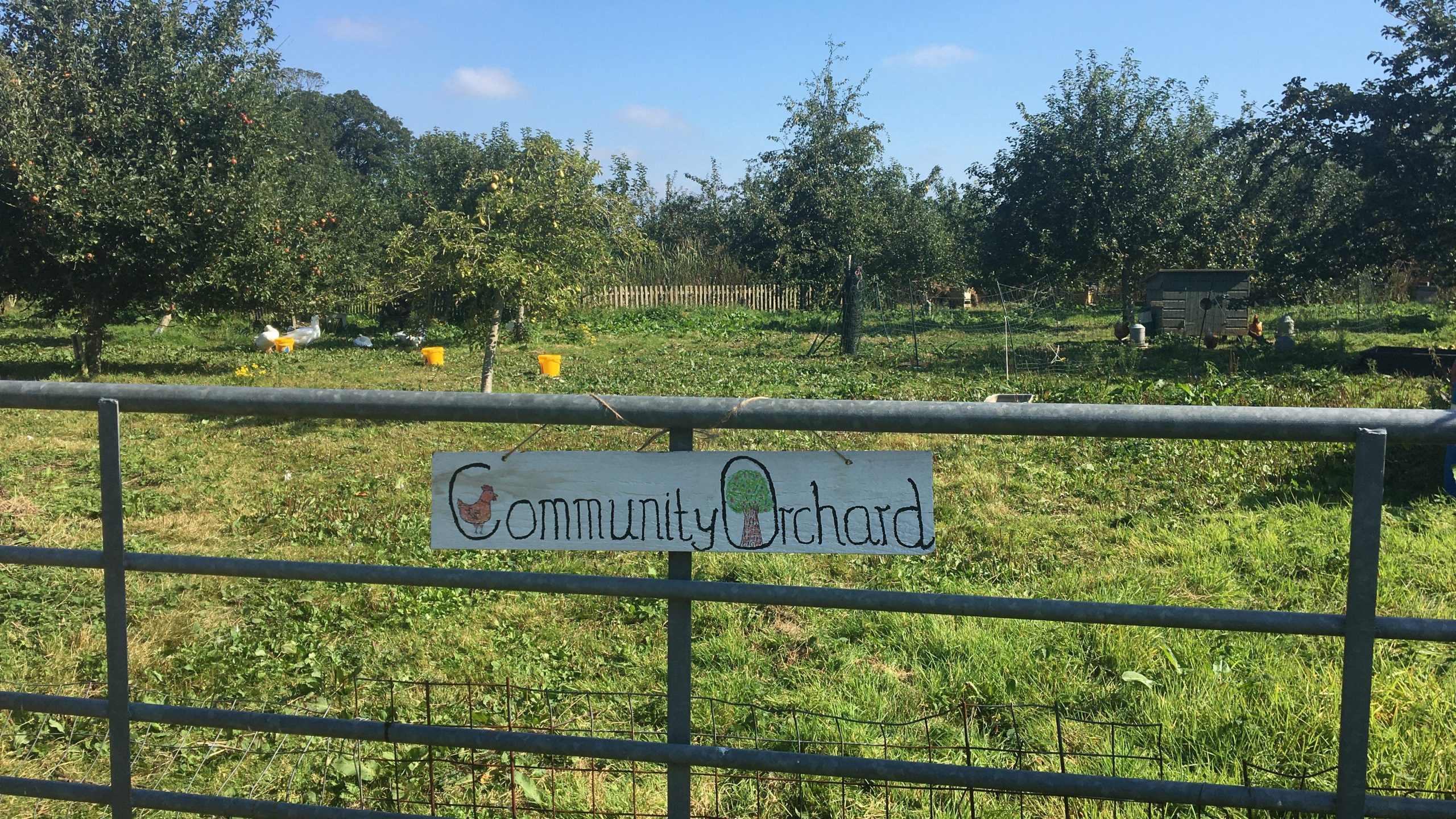
They pay rent for the land, which is owned by the Duchy of Cornwall on the edge of Poundbury, one of (then) Princes Charles’ model communities. They were also asked to take care of the neighbouring community orchard, planted with heritage apples and pears for Prince Charles’ 60th birthday by local schoolchildren. The farm’s hens and geese peck about under the trees, and it’s also home to their bees and a large wildlife pond.
The farm’s vision goes beyond creating a regenerative space for growing food and nature – it is to become an ‘outdoor village hall’, Michelle said, a space where the entire community feels welcome and connected. But that doesn’t happen by chance – it requires thought, care, time and relationship.
Thanks to a Transition Together seed-funding grant, funded by the National Lottery Community Fund, Michelle has been able to transition from volunteer to being paid one day a week as farm coordinator. It gives the project more capacity: “My job is to really involve everybody, reaching out to the community. It’s for the whole of Dorchester.”
There are two working farm sessions a week, with old hands working alongside newer volunteers and an inpatient mental health group. There is a daily rota for watering the vegetables, for caring for the poultry, and another team looks after the bees.

Michelle has set up a learning journey for people new to growing, with some of the projects founding members passing on their knowledge and skills alongside other local experts. “I’m learning as well, before I’d joined here I had never sown a seed!” admits Michelle. “It’s an amazing journey for me too, I love it and that’s why I can enthusiastically talk to people about how great it is to learn about growing food. My great great grandfather was a shepherd back in the day, and my Caribbean grandfather was a grocer and small holder, with a plot to grow food to sell in his shop.”
The food produced on site is shared among volunteers and offered to the community for donations at farm events. As it grows, they plan to offer more fresh food to a local food bank. Michelle added: “I’m very keen on food resilience matters. As elsewhere in the country we have food poverty in Poundbury – it’s not just posh people with expensive housing, there are all types of housing here.”
The farm site has low carbon aims, is off grid and has no mains water. Rainwater is harvested off the huge polytunnel and stored in large containers. Grass is cut by scything. The site is sparking ideas and reflection on local food and Michelle hopes in the future it will form part of a study into how Dorset can feed itself more sustainably.
There are big plans to join up with the local schools so the farm can provide children and their families with growing opportunities out of term time. She hopes to encourage young people in the community to look after the farm and animals and to see a forest school use their woodland and forest garden areas. There is also a linking up with the Youth Justice Service.
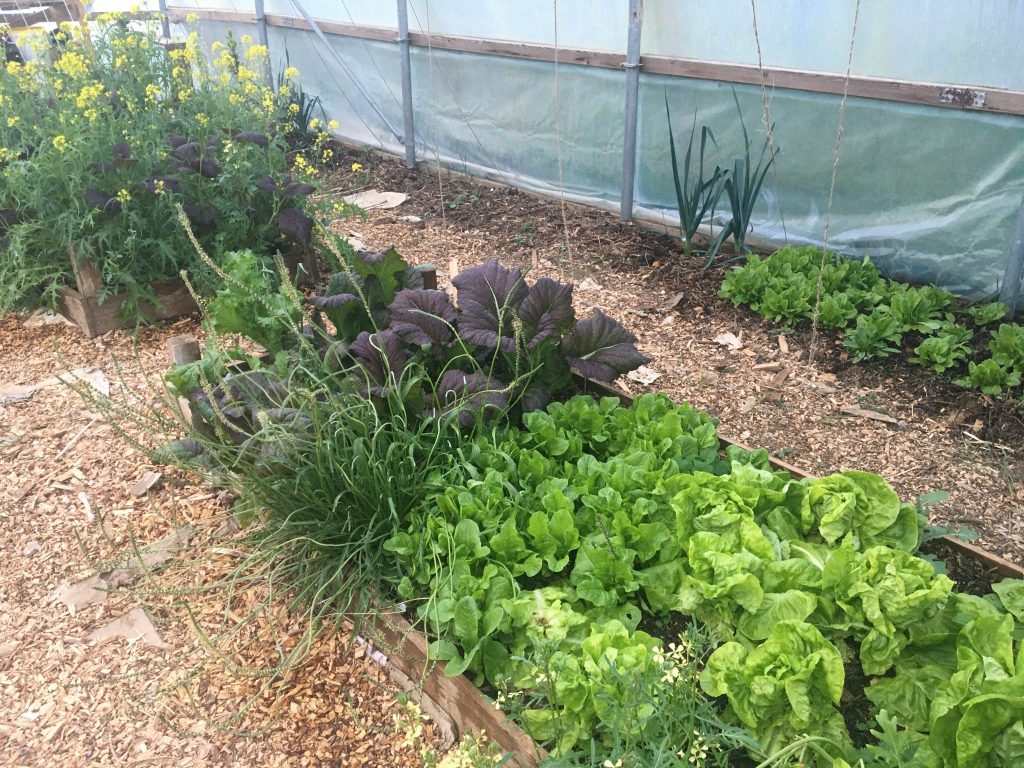
This week, the mission to open the farm to all in the community takes a step forward, as the farm launches a new partnership with Dorset Mind, the local branch of a national mental health support charity. Their ‘Eco in Mind’ group will have a dedicated plot on the farm, and use the space weekly for growing, art and wellness activities for adults and children experiencing mental health challenges.
Dorset Mind CEO, Linda O’Sullivan said: “We’re delighted to provide this essential service for adults and young people of Dorchester and welcome the opportunity to partner with Transition Town on the project. Georgia [from the Dorset Mind team] has liaised with local schools to help educate students, especially those young people who find it hard to go to school and are at risk of becoming excluded. They in particular have benefited from working and learning outside.”
For Dorset Mind the partnership offers a hosted outdoor space and some stability so they can plan years ahead how they will build up projects on the site. Transition Town Dorchester is just as enthusiastic, as it is a step change in how the farm can serve the whole community.
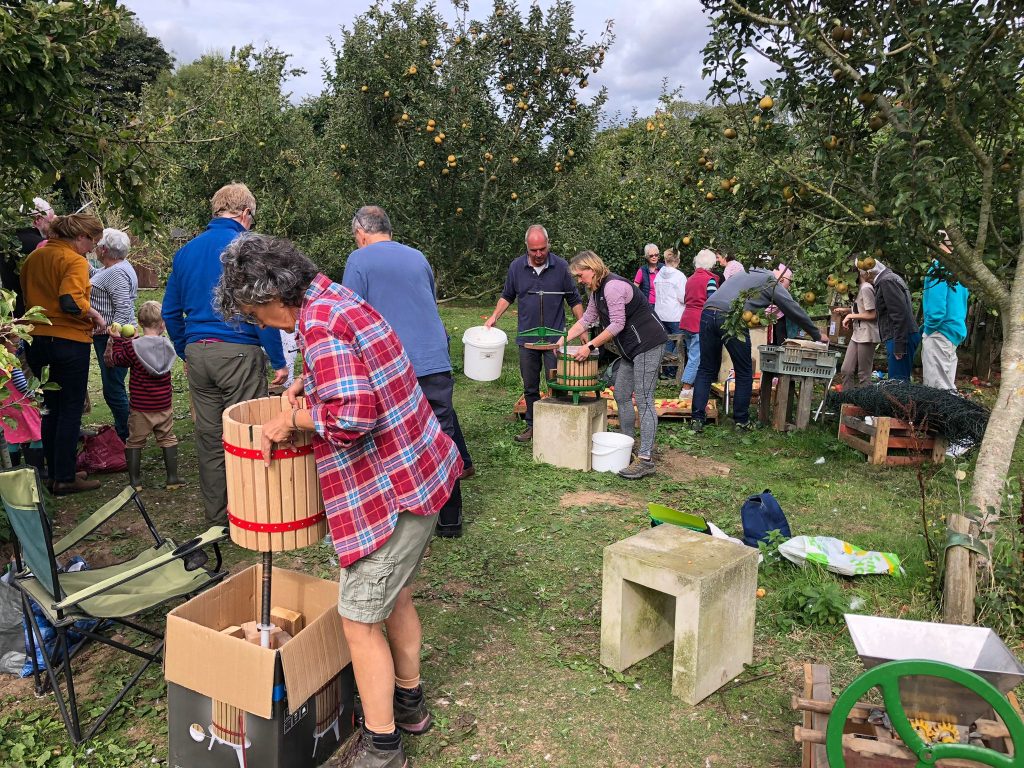
Michelle also dreams of bringing in the wider community by adding to the events they already host, like Apple Days. “There’s the whole idea that your community farm is ‘an outdoor village hall’”, she says, with concerts, theatre, workshops, art in the orchard and community groups using the site, “Anything which is an interesting draw to bring people in.”
“The biggest changes that are going to happen are going to be at the local level,” believes Michelle – and Transition Town Dorchester, like groups across the country, has a key role to play in showing people what’s possible. And as they reach ever deeper into their community and make their projects a place where all ages and life experiences can feel like they belong – that becomes ever more relevant and important to more people.